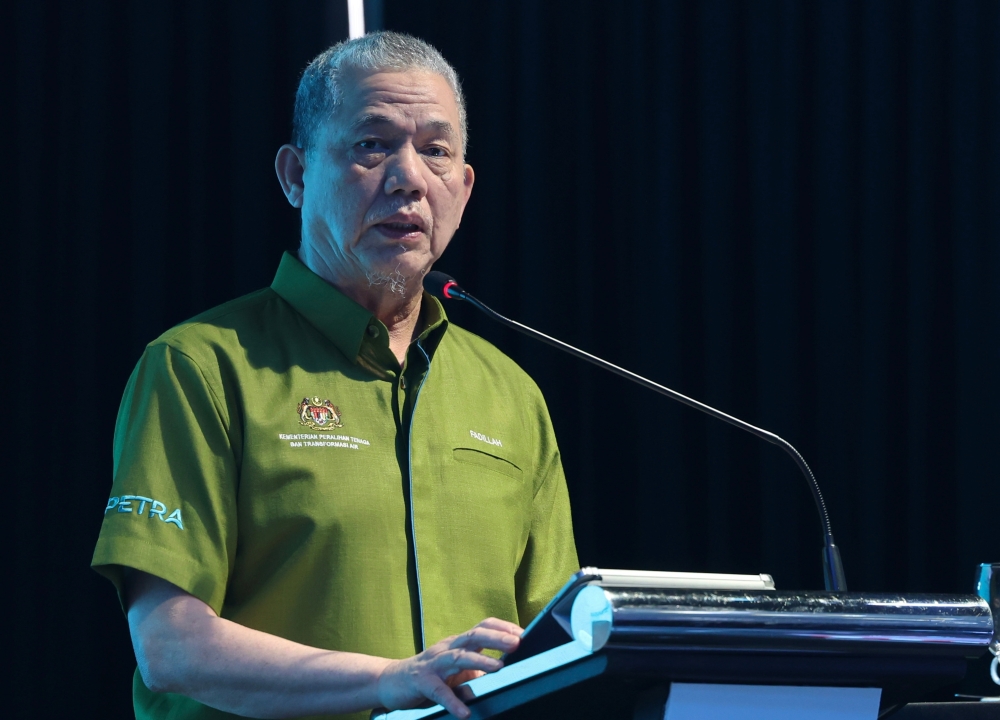BUSAN, Aug 24 — Deputy Prime Minister Datuk Seri Fadillah Yusof will lead Malaysia’s delegation to the 15th APEC Energy Ministers Meeting (Apec EMM15) in Busan, South Korea, reaffirming the country’s commitment to net-zero greenhouse gas emissions by 2050 and its role in regional energy cooperation.
Fadillah, who is also Minister of Energy Transition and Water Transformation (Petra), will undertake an official visit from August 27 to 29.
He will present Malaysia’s strategy to reach its net-zero target through the National Energy Transition Roadmap (NETR) and the New Industrial Master Plan (NIMP) 2030.
Malaysia’s participation in APEC EMM15 is expected to strengthen its standing as a strategic partner in regional energy cooperation and as a destination for sustainable, high-value green investment.
APEC EMM15, guided by the theme “Accelerating Sustainable, Affordable, Reliable, Secure and Innovative Energy for a Prosperous Future,” will gather more than 100 participants, including energy ministers, senior officials, and industry leaders.
The meeting will conclude with the adoption of a Joint Ministerial Statement.
Alongside APEC EMM15, Fadillah will join a roundtable dialogue at the 16th Clean Energy Ministerial (CEM16), the 10th Mission Innovation Ministerial (MI-10), and the 2025 World Climate Industry Expo (WCE).
He is also scheduled to hold bilateral meetings with counterparts from South Korea, Hong Kong, China, New Zealand, and Brunei to expand cooperation in the energy sector, particularly in advancing Malaysia’s energy transition.
As part of his programme, Fadillah will visit Korea Hydro and Nuclear Power’s Saeul Nuclear Power Plant and Doosan Enerbility to explore cooperation in training, technology transfer, and nuclear operations. He will also tour the Gangbyeon Wastewater Treatment Plant in Busan.
According to the Malaysia External Trade Development Corporation (Matrade), Malaysia was South Korea’s 11th largest trading partner and export destination in January-July 2025.
Bilateral trade was valued at US$15.69 billion, with South Korea’s exports to Malaysia rising 15.2 per cent year-on-year to US$6.91 billion.(US$1=RM4.22).
Malaysia’s exports to South Korea totalled US$8.77 billion, up 12.9 per cent from the same period in 2024.
Total trade between the two countries reached US$24.42 billion in 2024.
Beyond traditional energy trade, Malaysia and South Korea are deepening collaboration in carbon capture and storage (CCS), most notably through the Shepherd CCS Project.
The initiative will capture carbon dioxide (CO2) from South Korean industrial complexes, consolidate it at domestic hubs, and transport it to Malaysia for storage.
Key Korean participants include SK Energy, SK Earthon, Samsung Engineering, Samsung Heavy Industries, Lotte Chemical, GS Energy, Korea National Oil Corporation, Hanwha Corporation, and Air Liquide Korea. Petronas leads the Malaysian side, supported by Shell Gas and Power Developments B.V.
The project seeks to establish a full CCS value chain between the two countries.
South Korea aims to capture and store 4.8 million tonnes of CO2 annually by 2030, positioning Malaysia as a key CCS hub in the Asia-Pacific. — Bernama







